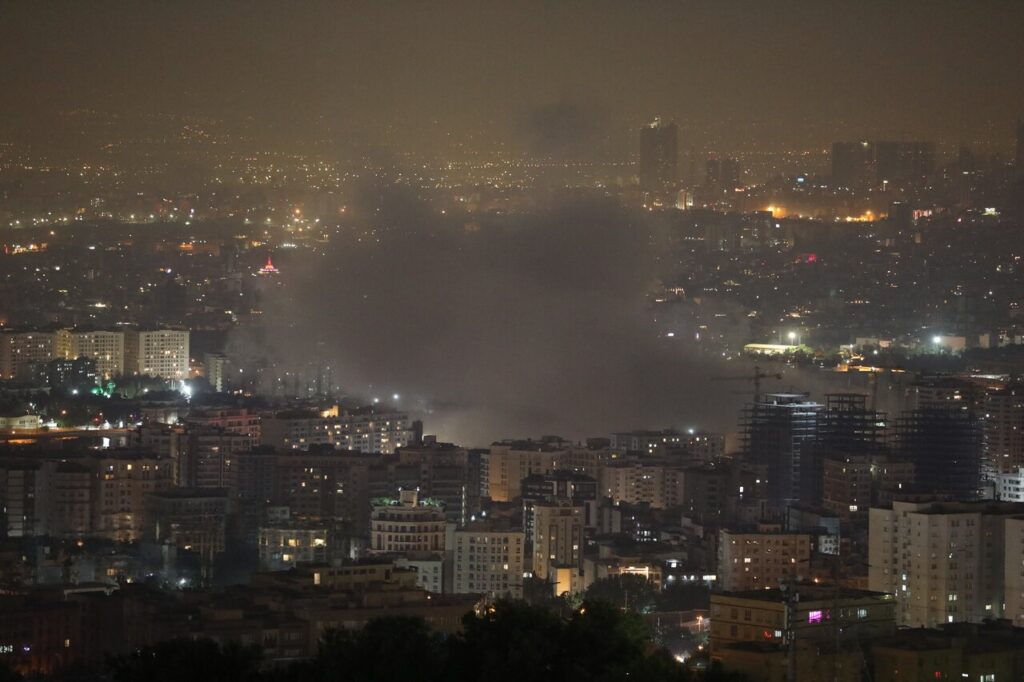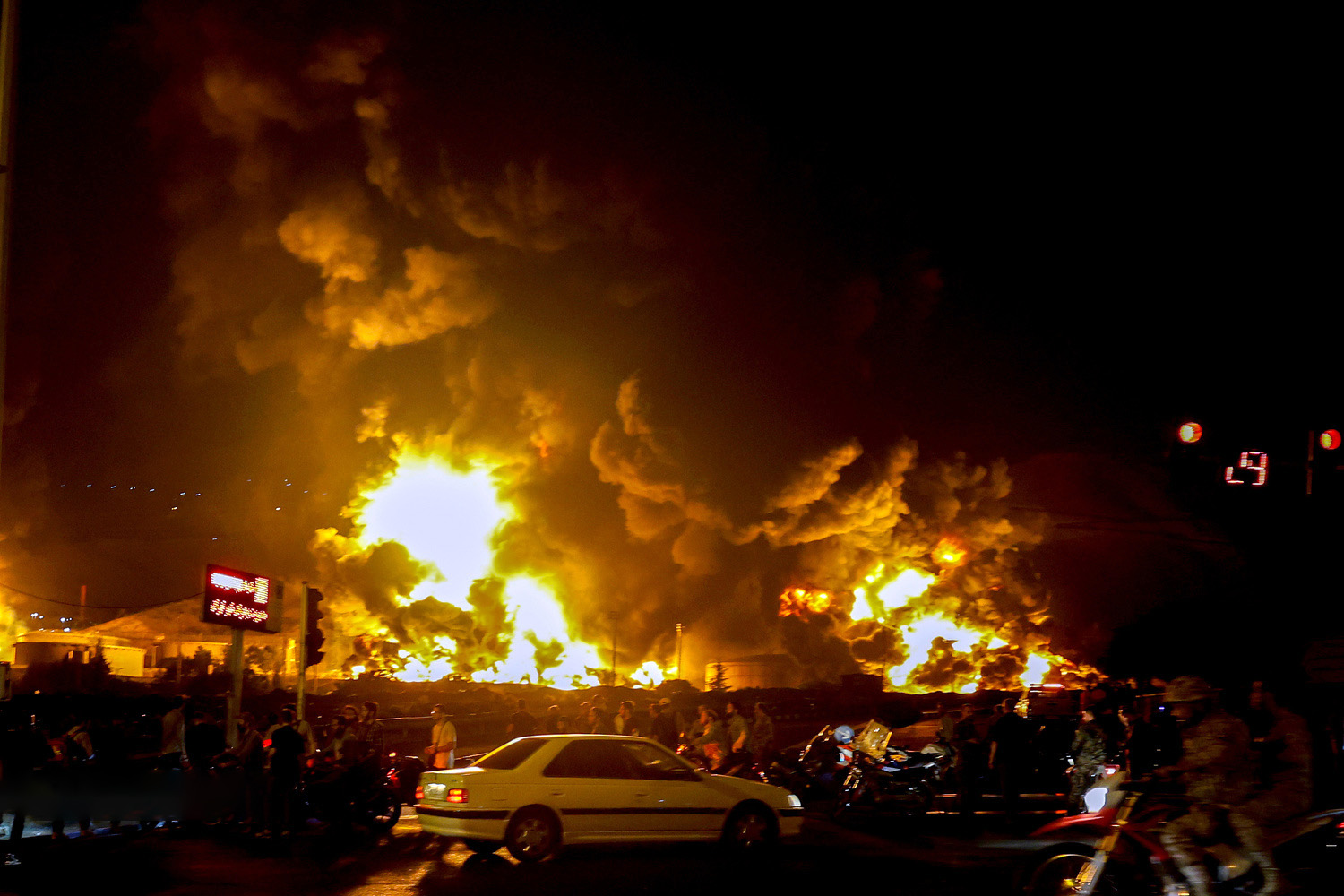While the world was glued to grainy satellite photos of bombed-out Iranian nuclear sites, something far more important was unfolding — and almost nobody is talking about it.
The war between Israel and Iran wasn’t just about uranium and enrichment. It wasn’t a single surgical strike or a PR stunt for deterrence. This was a geopolitical earthquake — and the aftershocks are only beginning.
Hezbollah — Iran’s most dangerous proxy — refused to fight.
Russia and China — Iran’s so-called strategic allies — stood down.
And Israel? Israel now controls the skies over Tehran.
These aren’t minor developments. They’re historic.
In the span of days, the Middle East’s balance of power was rewritten — not by press releases or diplomatic gestures, but by sheer military precision and political clarity. The implications stretch far beyond the region, reshaping the global chessboard and weakening the axis that’s long threatened the West.
Here are the four outcomes of this war that no one is talking about:
1. Hezbollah Didn’t Show Up — and That Changes Everything
For decades, Hezbollah has served as Iran’s forward base on Israel’s northern border — armed with 150,000 rockets, trained by the IRGC, and tasked with striking Israel if Iran were ever attacked.
That day came. And Hezbollah… stayed home.
This wasn’t restraint. This was defiance — of Iran. The Iranian Supreme Leader personally called on Hezbollah to act. They refused.
Why? Because they feared the consequences. Israel’s devastating campaign against Iran’s military infrastructure made it clear that retaliation would be met with overwhelming force. And Hezbollah, despite all its rhetoric, blinked.
That refusal marks the end of Iran’s regional deterrent. If Hezbollah won’t defend Tehran under direct orders from its patron, then its utility as a threat to Israel is gone. This is the most profound weakening of Iran’s terror network in decades — it happened without the need for a full-scale ground invasion of Lebanon.

2. The Collapse of the Iran–Russia–China Axis
For years, Western analysts have warned of an emerging bloc: Iran, Russia, and China — a counterweight to American-led global power. These were the so-called “strategic partners,” united by shared interests in undermining the West. And yet, when Iran came under massive attack by Israel and then by the United States, its “partners” did nothing.
Russia — which signed a comprehensive defense cooperation agreement with Iran in January 2025 — didn’t send weapons, intelligence, or even diplomatic cover. China — which inked a similar deal in 2021 — went even further: it intervened to stop Iran’s retaliation, blocking Tehran’s attempt to close the Strait of Hormuz to global shipping.
The implications are enormous. These partnerships, hyped as serious threats to global stability, just collapsed under pressure. The myth of a rising anti-Western superpower bloc has been shattered. And for China — which dreams of testing America in Taiwan — the takeaway is chilling: if Russia abandoned Iran, will it also abandon Beijing?
The message is clear: the West isn’t the one that looks fractured. The East is.
3. Israel Now Controls the Skies Over Iran
Two days after Israel’s initial strike on June 13, the IDF achieved full air dominance over Iran. Not temporary superiority, but total control. Iran’s surface-to-air missiles were gone. Its radar systems were blind. Israeli aircraft operated above Tehran without resistance.
How complete was this control? Iran’s foreign minister had to request permission from Israel to fly his diplomatic jet out of Iranian airspace en route to Geneva. Israel granted it.
This wasn’t just a flex. It was a signal: we are here, and we’re not leaving.
And they’re not. Defense Minister Israel Katz has said publicly that Israel intends to maintain this dominance long-term, treating Iranian airspace the same way it now treats South Lebanon or northern Gaza — zones of permanent operational freedom.
This didn’t happen in a vacuum. It’s the result of a broader Israeli strategy, implemented since October 7, to secure the airspace from the Mediterranean to the Persian interior. With Syria’s regime collapse, Israel took out every remaining Syrian air defense. Refueling runs for strikes on Iran now happen routinely over northeastern Syria — because Israel controls that airspace, too.
From the coast of Lebanon to the edge of Pakistan, there is now a corridor of Israeli air superiority. Tehran is no longer out of reach. It’s exposed.
4. Iran Can’t Rebuild — and Everyone Knows It
Some analysts have rushed to downplay Israel’s achievement, claiming Iran can and will rebuild its nuclear infrastructure. But rebuilding assumes sovereignty — control of your own airspace, your own supply lines, your own reconstruction efforts.
Iran has none of that now.
Israel has already bombed the roads leading to its nuclear facilities to prevent access. Any attempts to resume work will be watched — and destroyed. And the Iranians know it.
This is why the question of “how much physical damage was done” misses the point entirely. This isn’t about what was hit — it’s about what can never be rebuilt. Iran has lost the operational freedom to pursue nuclear weapons. Not just for now, but indefinitely.
A New Middle East — and a Stronger West
This war didn’t just damage Iran’s nuclear program. It exposed the hollowness of its alliances. It dismantled its proxy power. It redrew the map of air dominance in the region. And it gave Israel — and by extension the West — a position of strategic control the likes of which we’ve never seen before.
For years, the prevailing narrative in international circles was that Israel was an embattled state, a small nation with enemies on all sides, surviving through grit and resilience. That era is over. Israel isn’t merely defending itself anymore. It’s shaping the regional order — proactively, decisively, and with unmatched precision.
And if you’re wondering whether this war brought the world closer to peace or chaos, consider this: Iran is silent. Hezbollah is sidelined. Russia and China backed off. The skies are quiet — because Israel now owns them.
That, everyone, is what we call victory.
Rabbi Pesach Wolicki is Executive Director of Israel365 Action.





